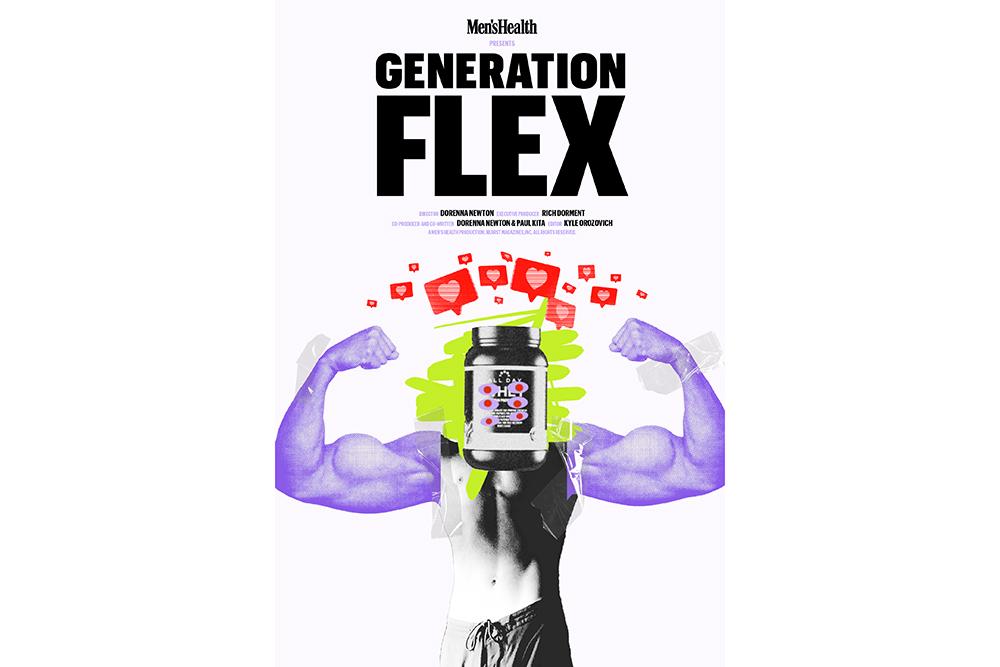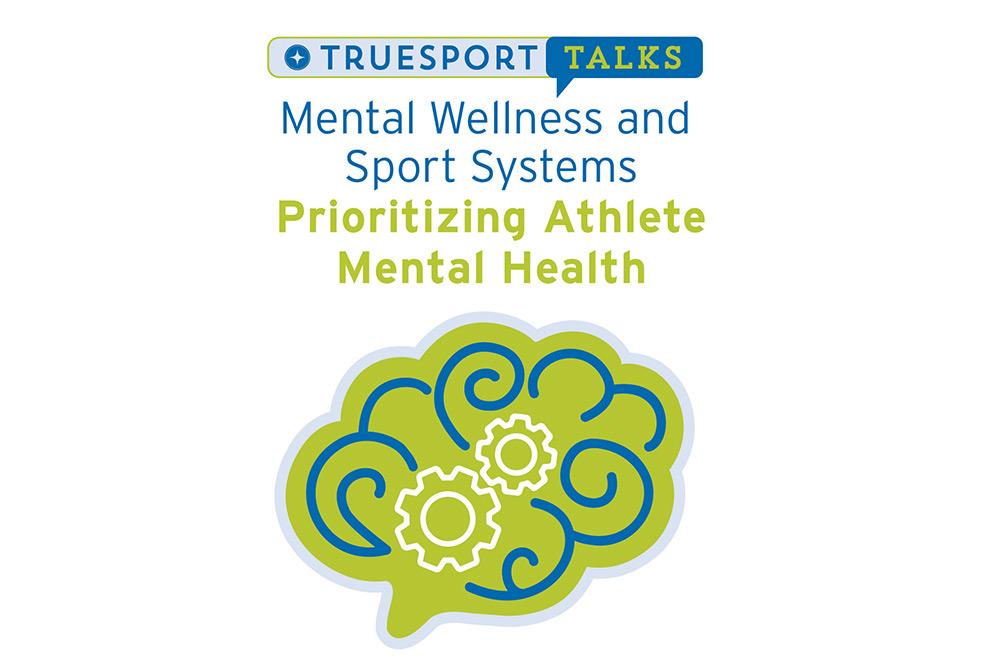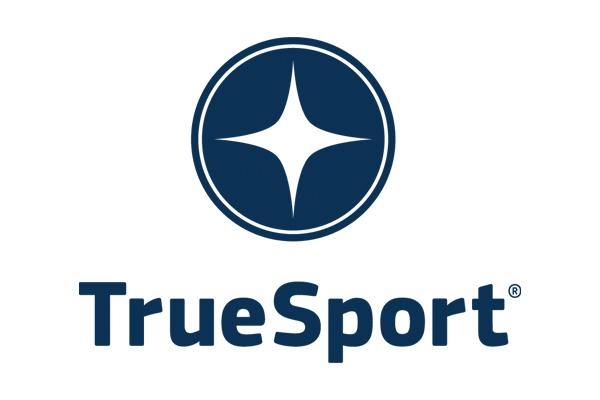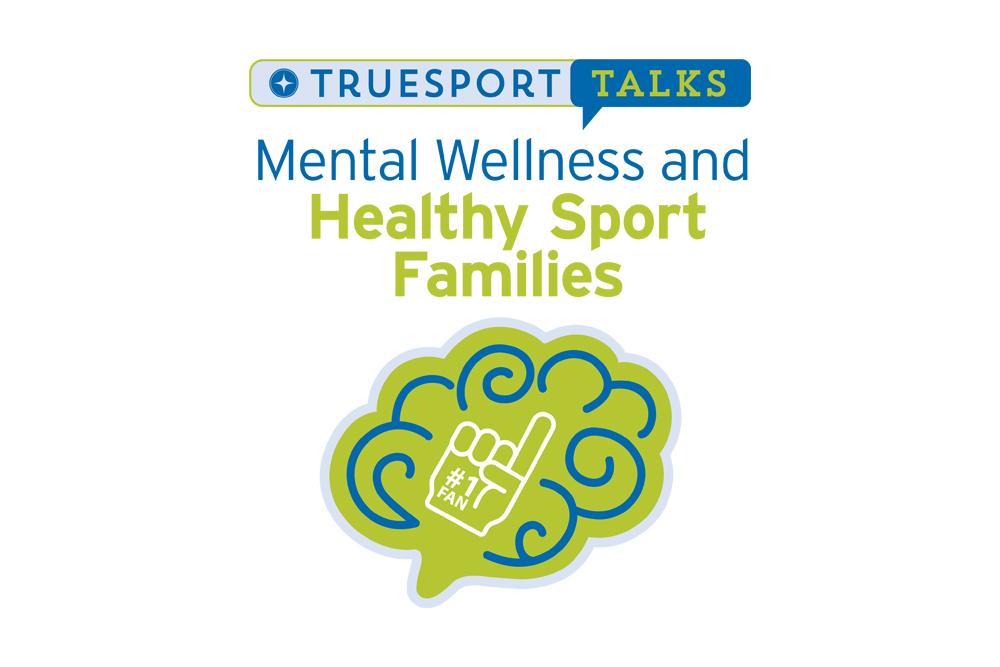The Unhealthy Behaviors Stemming from Social Media and Body Dysmorphia
Content Warning: This article contains mentions of eating disorders.
Men’s Health recently released Generation Flex, a compelling documentary showing how young men surrounded by social media and “fit-fluencers” have developed body dysmorphia and unhealthy obsessions with an ‘ideal’ body type. In the pursuit of these ideals, the boys in the documentary engage in dangerous behaviors to chase results, from overexercising to unhealthy and even fatal use of products marketed as dietary supplements.
For coaches, parents, educators, and student-athletes, this documentary is a must-watch to better understand how seemingly healthy aspirations can quickly turn dark when diet, exercise, and the use of supplements are taken to the extreme.
Watch Generation Flex

Deeply committed to athlete wellness, the U.S. Anti-Doping Agency (USADA) and TrueSport are sharing out the documentary to increase awareness of this increasingly common issue.
“I was really happy to see this documentary put such a strong emphasis on body dysmorphia and how early it can start,” says Dr. Amy Eichner, special advisor to USADA on supplements. “Historically, there are more discussions about body dysmorphia and eating disorders in young women. But rarely have those conversations included the body dysmorphia that young men face, and the lengths that they will go to try to obtain the body that they believe they should have—one with large muscles and next-to-no fat. And it’s rarely achievable: Often, these young men are too young to have that type of body no matter what they do, and it’s an unrealistic body for almost everyone regardless of age.”
Social media is one of the primary drivers for young men developing ideas around the ideal body type. The documentary highlights how social media platforms have found that ‘transformation’ videos of young men developing more muscular, leaner bodies do well within the algorithm, so those videos become what young boys are shown. It creates a downward spiral where more and more young men are trying to achieve these impossible ideals, turning to extreme measures to do so.
“Athlete health and well-being is always what we look at first, which is why we promote a ‘food first’ approach to fueling for performance and wellness, where athletes get what they need from food,” says Dr. Jennifer Royer, Senior Director of TrueSport and Awareness at USADA.
“However, we are also not naive to the fact that many athletes believe that they need to supplement. We want athletes to know that there is no supplement use that doesn’t carry some element of risk with it. Every time you ingest a supplement of any sort, even something that seems harmless, like a protein powder, there is risk associated. You can mitigate that risk by ensuring that your supplements have a third-party certification like NSF Certified for Sport, but even that doesn’t totally eliminate your risk. It just allows you to go back to pinpoint and document the contaminated substance if you were to test positive or experience negative health effects.”
“My area of expertise is the substances that people are willing to try in order to achieve a certain body type or performance result, and how it’s becoming more normalized for even adults to be experimenting with performance-enhancing substances or experimental pharmaceuticals,” Eichner adds. “That normalization is going to make the problem that Generation Flex discusses even worse, because the pathway to using these experimental and often dangerous products to supplement their diet is becoming even more normalized.”
“While Generation Flex highlights the issues with some dietary supplements, the problem is unfortunately bigger than just supplements,” says Eichner. “I think with our wellness industry, we have a lot of alternative medicine clinics that take it one step further by advertising experimental peptides and selective androgen receptor modulators (SARMs), and a lot of these performance-enhancing compounds can also be found in adulterated dietary supplements. There are a lot of adults that are using these already, and their kids see that usage.”
But there are a lot of potential downsides to using dietary supplements that promise to deliver performance enhancement. “If an athlete has aspirations of being a collegiate athlete, or an Olympian or Paralympian, supplements can intentionally or accidentally expose you to ingesting a prohibited substance, something that not only is not good for you, but is also prohibited in your sport and in your level of competition,” says Royer. “And when that happens, it’s one of the biggest tragedies we see. If you test positive for one of these substances, even due to accidental consumption, you can be sanctioned and lose playing time, lose your ability to compete, lose scholarships, lose opportunities to do the thing that you love so deeply and that you are dedicating your time and energy to.”
It’s also easier than ever before for young men to access performance-enhancing substances both in dietary supplements or other “wellness” or alternative health care products. Twenty years ago, if someone wanted a weight loss product or a protein product, they would be limited by what was on the shelf at a local pharmacy or grocery store. “That limitation no longer exists, because the world is infinite online and it’s easy to order any type of product, regardless of whether it contains substances that are banned in sport,” says Eichner.
Even ingredients that are considered relatively innocuous in small quantities, like caffeine, can now be purchased in potentially lethal amounts: The documentary shares the devastating story of a high school teen who died after ingesting a large quantity of caffeine powder, and points out that dietary supplements sometimes contain more than what they claim on the label.
Key Takeaways
First, skip the supplements if possible. “There’s no substitute for food,” says Eichner. “The ‘food-first’ approach is the best because the food will not only contain the protein that you want, but many other micronutrients that your body needs.”
“Second, young men need to develop a more realistic idea of what a healthy body looks like and what it can do,” she adds. Remember that what you see on social media and in films can be edited, filtered, or simply filmed at angles that create the illusion of a certain musculature. The people with those larger-than-life muscles may also be using performance-enhancing substances that unnaturally change their body type. “This can mess with a young man’s perception of what is realistic to achieve with a natural body, and that can be hard to accept,” Eichner adds.
For young men who are considering using dietary supplements or extreme dieting to increase muscle mass or decrease body fat, it’s important to understand the potential long-term risks. The documentary highlights one young man’s struggle to lose weight as a young teen. Now in his late teens, he has issues with digestion and hormones that may negatively affect him throughout his life.
“Going extreme in any context almost always ends in disaster of one type or another,” Eichner says. “For these young boys who are growing up with body dysmorphia and trying to control their physique through these extreme measures, often the side effects are invisible initially and don’t come to light for years, but by then it’s too late. That’s one of the things that makes talking about this topic so difficult: The warnings often fall on deaf ears because there may not be immediate consequences. But all of these things catch up to you eventually.”
If you’re an athlete who aspires to play at a high level, there are also risks that by using edgy dietary supplements that claim to enhance performance you’re potentially ingesting banned substances.
“Even if you are not yet in the testing pool for college or elite sport, starting to rely on supplements now can potentially jeopardize your health later, and may even cause a positive test long after you’ve stopped using the banned substance,” says Royer. “It’s simply not worth the risk.”
Finally, if you or a anyone you know is dealing with body dysmorphia or trying to change their body through extreme measures, it is important to seek professional help. Eichner suggests looking for a dietitian who is well-versed in sports dietetics as well as body dysmorphia and who understands anti-doping protocols and rules. Working with a mental health professional may also be an important step of the journey.


